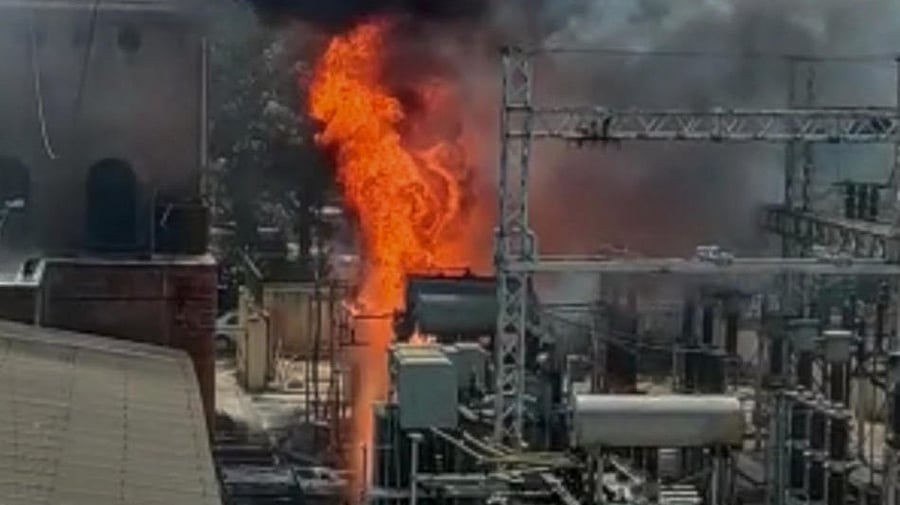
Fire after a transformer blast in Bengaluru.
Credit: DH Photo
One year has passed since the completion of the pilot project aimed at installing sensors under the centralized transformer health monitoring system to prevent mishaps. However, Bescom has encountered challenges in scaling up the implementation of the project.
In response to consecutive incidents of transformer blasts last year, the power utility agency decided to introduce sensors for recording real-time data on the health of transformers and critical monitoring aspects.
According to the plan, Bescom was to monitor oil levels, leaks, load, and temperature changes in the transformers. The data could alert the officials on the possibility of an accident.
“Majority of the transformer blasts are due to temperature changes and oil leakage. Recording and monitoring real-time data from the transformers will help take timely action to prevent accidents and transformer failures,” a senior Bescom official explained.
In addition to these features, Bescom also had plans to integrate data load balancing and voltage fluctuations.
Though the pilot project was conducted at close to 50 transformers in Malleswaram and Koramangala last year, Bescom has been taking it slow owing to financial constraints. According to sources, three firms have come forward to offer the services but Bescom is yet to finalise a plan.
"There are over three lakh transformers under Bescom jurisdiction and to install the system in all of these along with a central monitoring station is expensive. Hence, the project is still in the initial stages and may have to wait," one of the sources said.
While senior officials asserted that they have been trying to bring down the instances of transformer failures, data shows that there is not much of a change on the ground, indicating a need for a better management system. The transformer failure rate was 7.52 per cent in 2020-2021 and this increased to 7.9 per cent in 2021-22. In 2022-23, the failure rate stood at 7.95 per cent.
